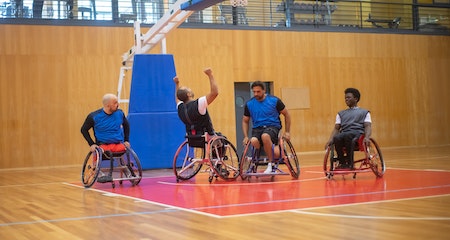The Americans with Disabilities Act, a civil rights law, guarantees equal access for people with disabilities in public accommodations, employment, transportation and state and local government services.
LCCC will make reasonable accommodations for students with disabilities. All accommodations are determined on the basis of sufficient documentation from qualified staff members on campus.
Collect medical evidence
Medical evidence is a crucial part of your disability support claim. It helps the Social Security Administration (SSA) make a well-informed decision about whether you qualify for benefits.
A written statement from your doctor is the most important piece medical evidence. This should be typed, professional, and exhaustive, including the type of tests you had performed, your responses to treatment, future plans, and a prognosis.
The SSA will also ask you for copies of any records from hospitals or other treatment facilities where you were treated for your condition. In general, the more medical records you submit, the faster your claim will be processed. It is also a good idea to seek statements from other medical professionals who have examined you or may be able provide additional information about the condition such as your employer, physical therapy providers, or alternative treatment providers. These statements can be useful for many reasons, but they are especially helpful if your disability is related with your work-related injury or illness.
Request clinical or laboratory tests
Your doctor will need to present objective medical evidence to support your claim that you are disabled. This may include laboratory test results and x-ray images.
The medical source may also be asked to provide a written statement about your disability and its impact on your ability to work. It should be informative and detailed.
This information should be submitted with your DSS Registration form. It will help us determine if we are eligible for disability support. Documentation should include your physician’s credentials, diagnosis and functional limitations, as well as prognosis.
All testing entities must rely on documentation provided by a qualified professional after having carefully reviewed the candidate and recommended a testing accommodation. However, if a testing entity has reason to believe that the candidate does not have a disability services Melbourne or is not otherwise entitled to a testing accommodation, it must request additional documentation from the candidate.
Ask for a reconsideration
You may be eligible to request a reconsideration if your Social Security Administration denied your disability claim. This is a review of your case that is independent from the initial decision.
Reconsideration is often used to reverse denials that were based upon insufficient medical evidence or incorrect assessments of your impairments. The SSA examiner will continue to review all evidence submitted with your application and any additional information that you provide during your request for reconsideration.
When preparing your reconsideration letter, be sure to include all of the important details that were missed during your initial application, such as visits to your doctor and any treatment or work activity you have done since. Your chances of success in this stage will be greatly improved if you include all of the relevant information and documentation.
Schedule a hearing
If you have been denied disability support, you will need to schedule a hearing. This must be done within four months from the date of your denial.
The SSA will send you a notice of your hearing date and location. This notice will also describe the issues to be decided and include information on how to participate in your hearing using Webex.
When you go to your hearing, it is a good idea to have your medical records and any other evidence available. This is important as it will help the Judge decide if you are disabled.
If your case has been reviewed by a vocational expert, your attorney may ask questions of the vocational expert and solicit testimony regarding your residual functional capacity (RFC). Your RFC is what you can do physically and mentally during an 8 hour work day.



